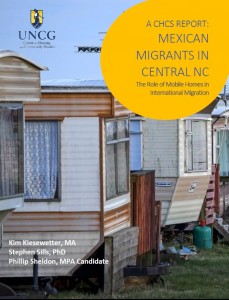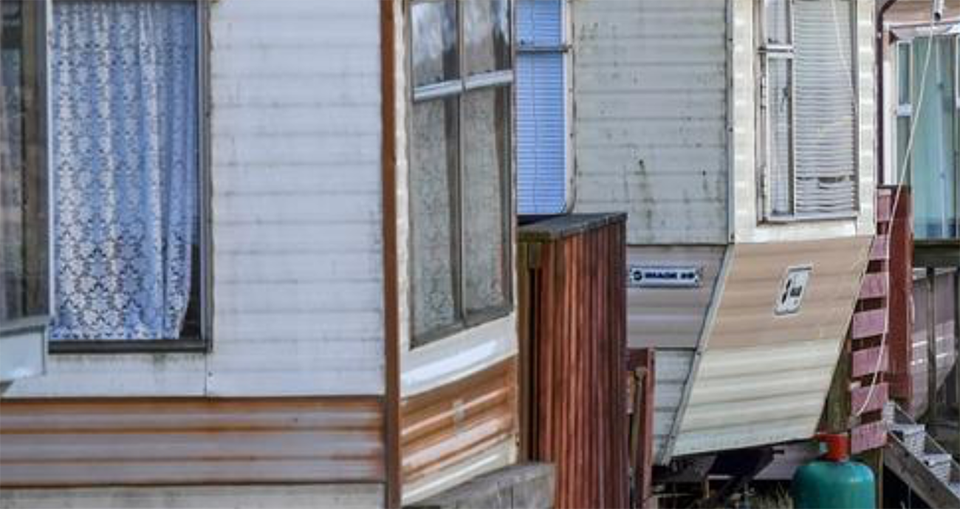The Role of Mobile Homes in International Migration

This research project was a partnership between Kimberly Kiesewetter, a Master’s Candidate in Anthropology at the University of North Texas, and the UNCG Center for Housing and Community Studies (CHCS). It took an exploratory approach, utilizing predominantly qualitative methods with a geographic focus on central North Carolina. The initial demographic group targeted for inclusion was both migrants and refugees living in mobile homes in the US. Ultimately, twelve interviews were conducted over the course of three months, all with individuals who migrated from various parts of Mexico. All interviewees lived in the same rural county in NC and came from three different mobile home communities. Through the course of the interviewing process, certain themes began to emerge which facilitated the ability to streamline the interview guide. These themes included, 1) the unique benefits and challenges of mobile home living for Mexican migrants living in central NC, 2) the role of people’s social networks during the migration process in finding a mobile home to live in, and 3) the limited impact of mobile home stigmatization on migrants.
One of the most unique benefits of mobile homes for this particular group was the value these homes can bring in building social capital during the migration and relocation process. Mobile home ownership is one of the most affordable – if not the most affordable – pathways to home ownership in the US. The process of purchasing these homes, means that even people with very modest earning and savings can potentially achieve the American Dream of owning one’s own home. For migrants, even a modest mobile home in poor-to-fair condition can become a valuable commodity during the migration process.
Read the full report: Rural Immigrant Mobile Home Report
